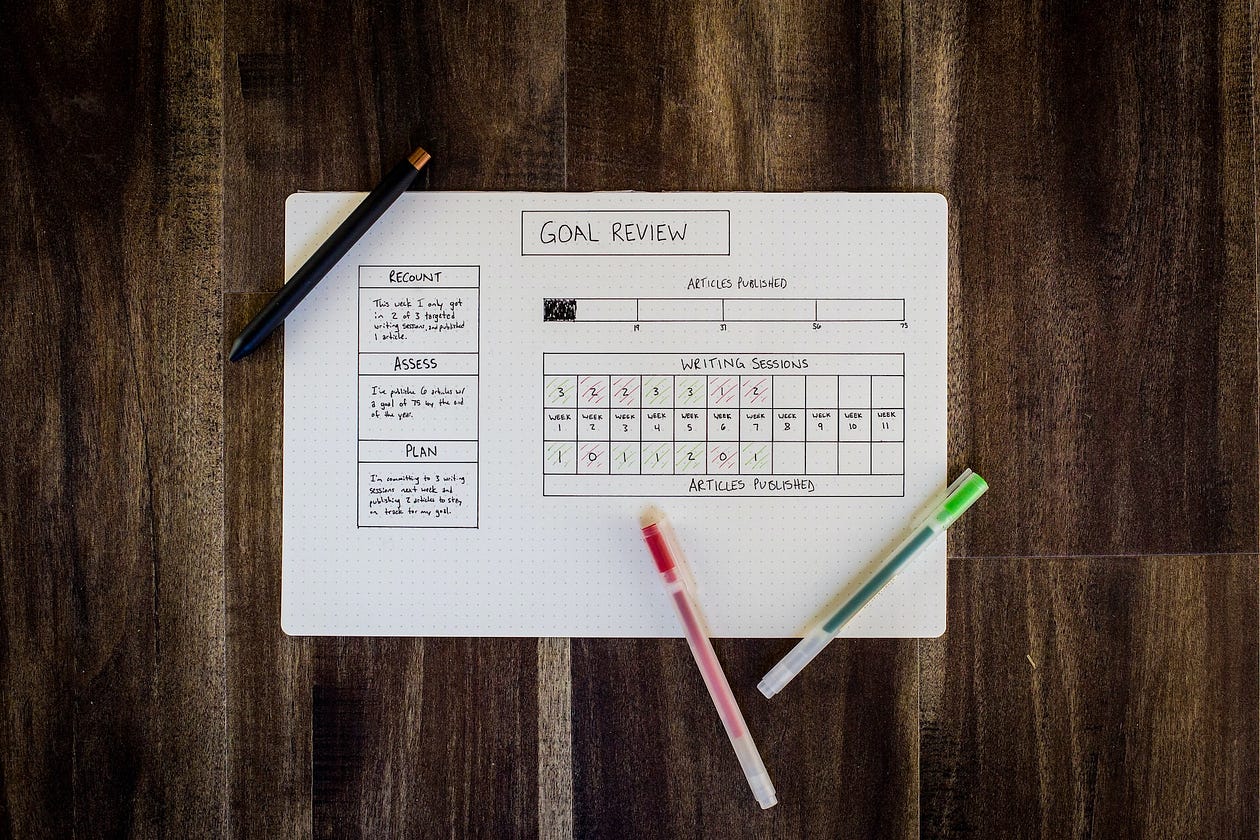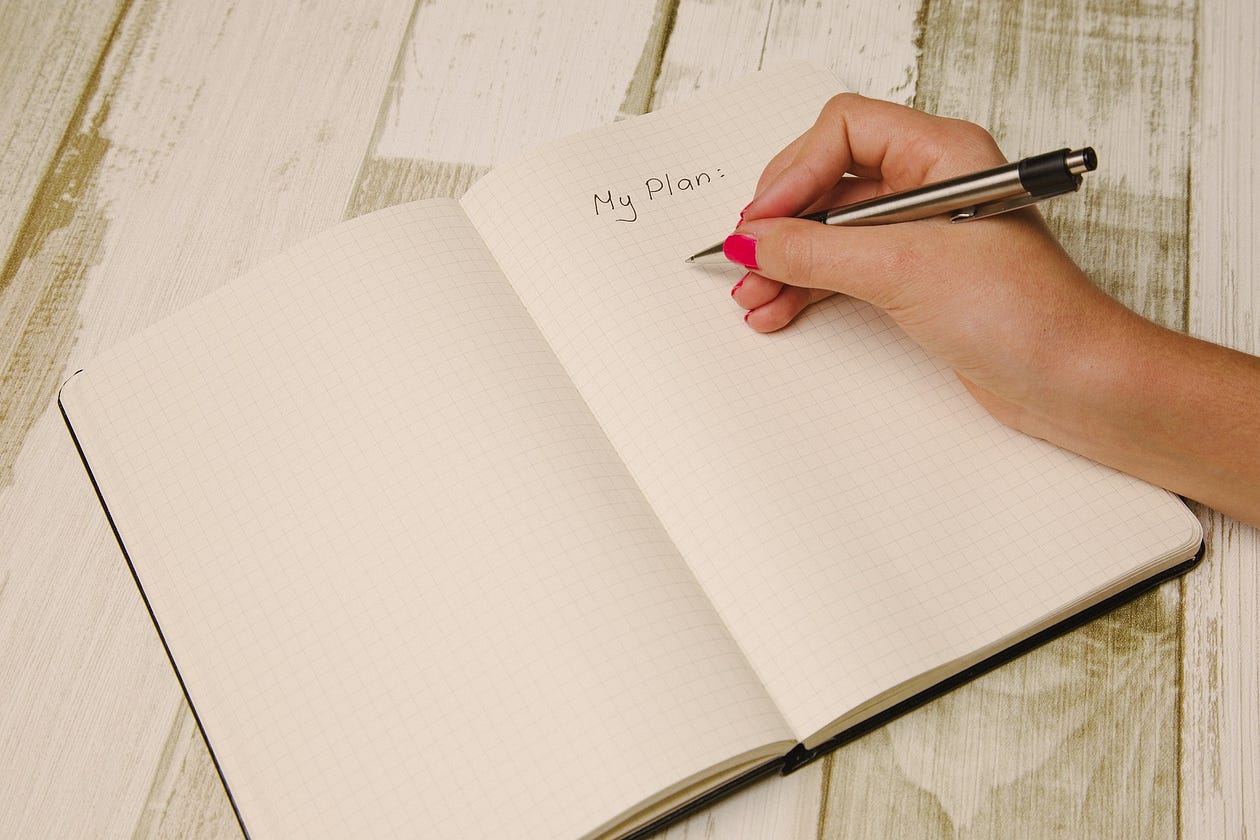A new year is starting, and it’s psychologically proven that with natural new beginnings (new year, new month, Mondays) it’s much easier to reset and plan and there is a bigger chance to actually follow the plans you set.
For digital nomads the situation is practically the same, the only difference is that they need to make sure the goals they set are in line with their lifestyle, and possibly with their destination.
Why set goals?
A question many people pose, thinking that setting goals can contradict the nomad lifestyle that they believe is based on “Going with the flow”. However, there is no truth to this claim. When you are location-independent, you need to plan more than you ever planned in order to be able to enjoy this lifestyle. You need to practice discipline to be able to work and enjoy your destination, and you need to take care of your mental and physical health, all of this can happen only if you plan.
Having goals gives us the motivation to do what’s right and helpful for our souls, our career, and our bodies. Goals provide a sense of stability when you work towards your aim, and stability is a concept that is not present in many aspects of the digital nomad life.
Goals also give you a sense of control, working towards being the person you would like to be.

How to set goals?
1. Reflect on last year
If you sit calmly, take a deep breath, and think about last year, what conclusions can you draw? What did you like? And what do you think you need to learn, add or handle better?
For example, you may have experienced a lot of stress during the year, so maybe adding meditation to your routine would be a good idea, or maybe you started a new hobby and you want to get better at it, so you need to give more time to it. Maybe you picked up a bad habit, like eating a lot of junk food that you would like to stop/change in the new year.
2. Make sure you define SMART goals
SMART is a famous acronym for setting goals and actually achieving them, following these criteria also helps limit the frustration you may get if you falter along the way. Here are some examples to make it clearer.
- Specific: instead of saying “I want more me-time”, you should make it more specific, like “having 1 hour a day for myself”.
- Measurable: instead of saying “lose weight”, to make it measurable you can say “Lose 3 kilos by June”.
- Attainable: make sure your goal is realistic. For example, you may want to learn to play the piano, but saying “you want to learn to play the piano in a week” is not attainable.
- Relevant: Is your goal relevant to your life? To the person, you want to become? Life is short and time is rare, make sure your goals are relevant to you and your own bigger picture of your life.
- Time-bound: adding a time limit to your goals help give you the motivation and the accountability for them. Instead of saying “i want to read 3 books”, you can say “I want to read 3 books by March”.

3. General tips
Here are some extra tips to keep in mind when writing your goals
- Use 1st person: I want, I will…etc. It gives you agency and motivation.
- Be clear: keep every goal in 1 clear sentence.
- Make them actionable: use verbs to inspire yourself to take action.
- Keep your goals visible: keep them somewhere you can see often, so you keep reminding yourself of your goals.
4. Write your goals
Don’t know where to start? Here’s a way to make it easier, break your goals down into categories, go back to your reflections in step 1 and take it one category at a time to adjust/improve/add to the conclusions you drew. Here are the categories below, with examples that may inspire you.
- Health and fitness: Maybe you want to work out more, or find a group fitness class in your destination so you can meet some locals. Maybe you want to locate the farmer’s market so you can buy and cook healthier food.
- Career and business: Maybe you want to learn a new job skill, find new clients, add a new feature to your business, or maybe you want to connect with other nomads who you can collaborate with.
- Personal Development: Books you want to read, new skills or courses you want to take, anything that can help you develop yourself.
- Finance and net worth: Maybe you need to save for emergencies, or for your next destination, maybe you need to find a budget format that fits your life, or find a new way to invest your money or create passive income.
- Spiritual: maybe you want to meditate more, and find a spiritual practice that helps you connect with your body, your spirit, or your thoughts.
- Relationships: especially as a digital nomad, having goals regarding your relationships is important; whether that be having a weekly date night with your partner, more calls with your family, or checking up on friends in a group text.
- Fun and hobbies: Having fun and keeping up with your hobbies is important for your mental health. Maybe you want to continue your dance classes in your destination, or find a group of nomads who love to join you for a game of basketball, or going hiking, or discover different restaurants and bars. Whatever fills you with joy, you have to have a goal that makes it part of your program.
- Destinations: in this one you can add your plans for destinations this year. Seeing your destinations alongside your goals may help you plan better, and figure out ways to achieve your goals in these destinations.
One final tip is to keep your mental and physical health at the front and center of your plans, make 2023 a year of well-being, which will allow you to discover more destinations, have more experiences, and enjoy life as a digital nomad.

Have you planned your new year’s goals yet? Share them with us.
Originally published at https://andysto.com on January 3, 2023.

